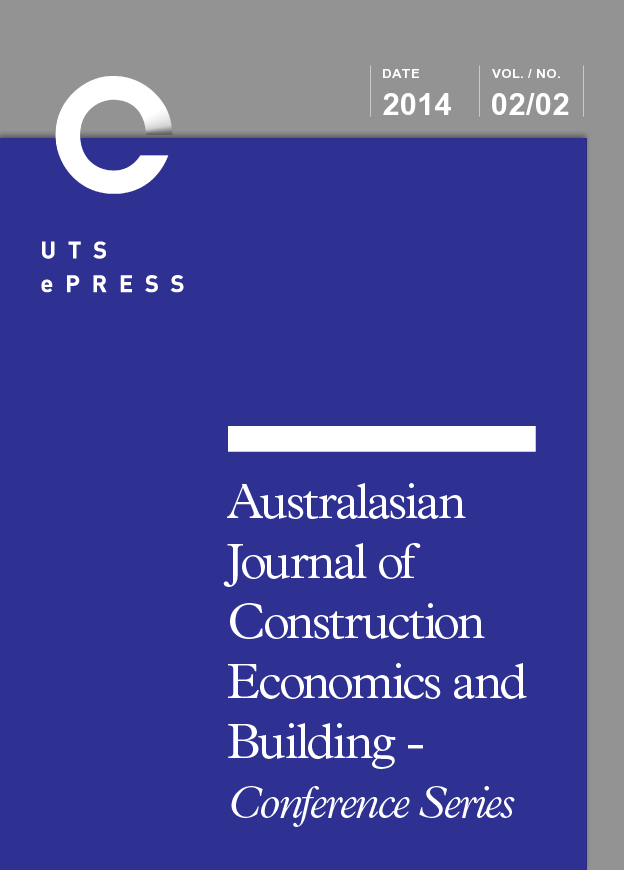Innovative Unit Delivery – The Supported Cloud
Main Article Content
Abstract
Deakin University has recently moved to an academic calendar of three trimesters. This change aims to provide students with greater flexibility to plan their study around work or life commitments, create options for students to commence their degree and enable students to fast track their study. It has been found for students in the Bachelor of Construction Management that engagement and satisfaction during summer (Trimester 3) are less than when those same units are delivered during other trimesters. This research addresses the use of Supported Cloud learning to improve learning and the relationship with students. The School of Architecture and Built Environment used two units as case studies to examine different innovative unit delivery strategies that combined cloud and located learning. The research design included evaluation surveys, questionnaires, and semi-structured interviews as well as reflection by participating teachers. The findings show that students’ results are improved when the cloud based learning is supported by well-developed resources, structured delivery and availability of some face-to-face contacts. This innovation will serve as a benchmark for Cloud delivery in the School in all trimesters.
Keywords: Flexible Delivery, Construction Management Education, Cloud Learning, Located Learning
Article Details
Section
Authors who publish with this journal agree to the following terms:
a) Authors retain copyright and grant the journal right of first publication with the work simultaneously licensed under a Creative Commons Attribution License that allows others to share and adapt the work with an acknowledgement of the work's authorship and initial publication in this journal.
b) Authors are able to enter into separate, additional contractual arrangements for the non-exclusive distribution of the journal's published version of the work (e.g., post it to an institutional repository or publish it in a book), with an acknowledgement of its initial publication in this journal.
c) Authors are permitted and encouraged to post their work online (e.g., in institutional repositories or on their website) prior to and during the submission process, as it can lead to productive exchanges, as well as earlier and greater citation of published work (See The Effect of Open Access). Where authors include such a work in an institutional repository or on their website (ie. a copy of a work which has been published in a UTS ePRESS journal, or a pre-print or post-print version of that work), we request that they include a statement that acknowledges the UTS ePRESS publication including the name of the journal, the volume number and a web-link to the journal item.
d) Authors should be aware that the Creative Commons Attribution (CC-BY) License permits readers to share (copy and redistribute the work in any medium or format) and adapt (remix, transform, and build upon the work) for any purpose, even commercially, provided they also give appropriate credit to the work, provide a link to the license, and indicate if changes were made. They may do these things in any reasonable manner, but not in any way that suggests you or your publisher endorses their use.
